Category: Tips and Tricks
Articles about tips and tricks for caregivers and nurses caring for the terminally ill.
Articles about tips and tricks for caregivers and nurses caring for the terminally ill.
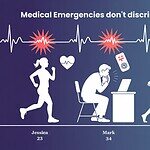
If you're 18 or older without an advance directive, you're putting yourself and your loved ones at risk. This comprehensive guide explains why every adult—regardless of age—should prioritize creating a thorough living will reviewed every 3-6 months, and how end-of-life doulas can help.

Learn why planning a death vigil early with an end-of-life doula creates meaningful final moments, reduces family stress, and helps prevent complicated grief. Discover the profound benefits of this sacred practice for everyone involved.

Discover how CaringBridge helps families and end-of-life doulas stay connected during health journeys. This free platform offers privacy controls, easy updates, and community support for chronic illness, terminal illness, and life transitions.

Primary caregivers often face difficult emotions of isolation when loved ones step back during a chronic or terminal illness. This article thoughtfully addresses these feelings, delves into the reasons for this distance, and provides constructive communication strategies to foster reconnection with hesitant family members. It also highlights alternative support avenues for caregivers, ensuring they feel valued and supported.
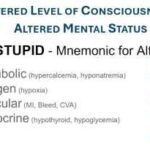
Discover essential techniques for hospice and palliative care nurses to identify subtle changes in patients' level of consciousness. This comprehensive guide covers assessment methods, red flags, and best practices for enhancing patient care—valuable insights for neurological nursing specialists and those aspiring to specialize in this field.

Understanding the potential risks associated with certain medications in the geriatric population is crucial. This article explores the top five medication classes that require close monitoring to reduce the incidence of syncope, falls, and mortality events in older adults. Learn how to optimize medication management for safer patient care.

The BEERS Criteria is vital for improving medication safety in older adults. This article explores the importance of regularly reviewing these guidelines, discussing the frequency of reviews, the potential risks of inappropriate medications, and how healthcare providers can implement effective medication management strategies for geriatric patients.

Ambiguous loss is a type of grief that happens when loss feels unclear or unfinished. Unlike traditional grief, this emotional pain lacks closure, making it harder to process. Learn to recognize the signs of ambiguous loss and discover practical healing strategies to help you move forward with hope.

Conflict happens in every relationship and setting. This practical guide teaches a proven 7-step approach developed by conflict resolution experts to recognize, prevent, and resolve disagreements compassionately. Learn essential de-escalation tools for better communication and stronger relationships.
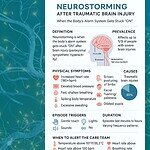
Neurostorming is a complex condition that occurs after severe brain injury, causing episodes of elevated heart rate, blood pressure, fever, and muscle rigidity. This comprehensive guide helps caregivers, family members, and healthcare professionals understand prevention strategies, early detection methods, home management techniques, and advocacy approaches to reduce hospitalizations while providing compassionate care.

When a family can't accept that their loved one is dying, it creates additional stress during an already challenging time. This article offers guidance on communicating with denial, supporting the patient, managing family dynamics, and finding professional help. Learn practical strategies to navigate this sensitive situation with compassion and understanding.
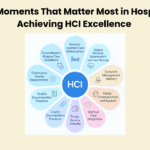
Transform your hospice's quality outcomes with Jose Escobar's proven Polaris 10/10 HCI Execution Framework. This comprehensive guide reveals the ten critical moments that drive hospice excellence and offers practical strategies for executives and clinicians to achieve perfect HCI scores.

Caring for a terminally ill loved one at home is an incredibly challenging and emotional journey for family caregivers. This guide acknowledges the struggles you may face and offers compassionate solutions. It explores valuable resources, such as end-of-life doulas, PACE programs, and professional home care services, all designed to help ease your burden and provide support during this difficult time. You are not alone in this experience; there are ways to find relief and comfort as you navigate these profound challenges.

Legacy projects offer powerful pathways to closure for both patients facing end-of-life and their families. From memory quilts to ethical wills, these meaningful activities transform difficult goodbyes into lasting connections, reduce anxiety, and provide comfort during grief while preserving precious memories.
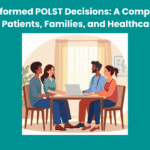
This comprehensive guide helps patients, families, and healthcare professionals confidently navigate POLST decisions. Learn the essential steps, understand your options, and ensure your end-of-life care wishes are honored through proper planning and communication.
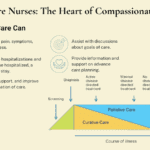
Palliative care nurses serve as the cornerstone of compassionate healthcare, providing comfort and support to patients with serious illnesses at any stage—not just at end of life. These dedicated professionals bridge the gap between medical treatment and holistic care, ensuring patients and families receive comprehensive support through their healthcare journey.
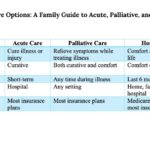
Discover when and how acute, palliative, and hospice care can help patients and families navigate serious illness. This comprehensive guide explains the differences between care types, eligibility requirements, and how to choose the correct option.
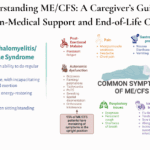
This comprehensive guide helps caregivers, families, and end-of-life professionals understand ME/CFS, providing practical tools for non-medical support. Learn about the disease trajectory from onset to end-of-life care, including when palliative and hospice care should be considered for optimal patient comfort and well-being.
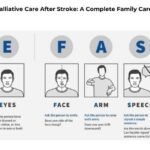
Discover how palliative care can transform the stroke recovery journey for patients and their families. This comprehensive guide explains the benefits, services available, and steps to access palliative care support throughout the United States.
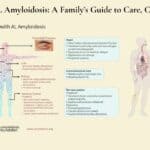
AL amyloidosis is an uncommon yet severe condition that impacts various organs. This detailed guide provides essential information for patients and their families regarding symptoms, disease progression, treatment options, and the timing of considering hospice care for their loved one.
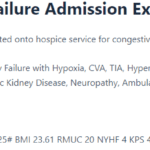
Learn about the essential elements of a comprehensive hospice admission note. This guide helps registered nurses document crucial patient information, from diagnoses to physical assessments, ensuring the delivery of quality end-of-life care and proper eligibility documentation.

Discover how hospitals are crucial in helping families place dementia patients in appropriate care settings. This article explores various care options, discusses challenges in placement decisions, and provides evidence-based strategies for effective hospital-based care coordination to ensure the best possible outcomes for patients and their loved ones.

Discover the theory of retrogenesis and its profound impact on dementia care. This comprehensive guide helps nurses, caregivers, and families understand how dementia reverses developmental stages, offering practical insights for tailored care strategies. Learn to navigate the challenges of dementia with empathy and effectiveness.

Explore the essential regulatory timeline requirements for hospice providers, covering everything from initial certifications to recertifications, nurse visits, and face-to-face encounters. This comprehensive guide helps ensure compliance and proper billing practices for hospice services.